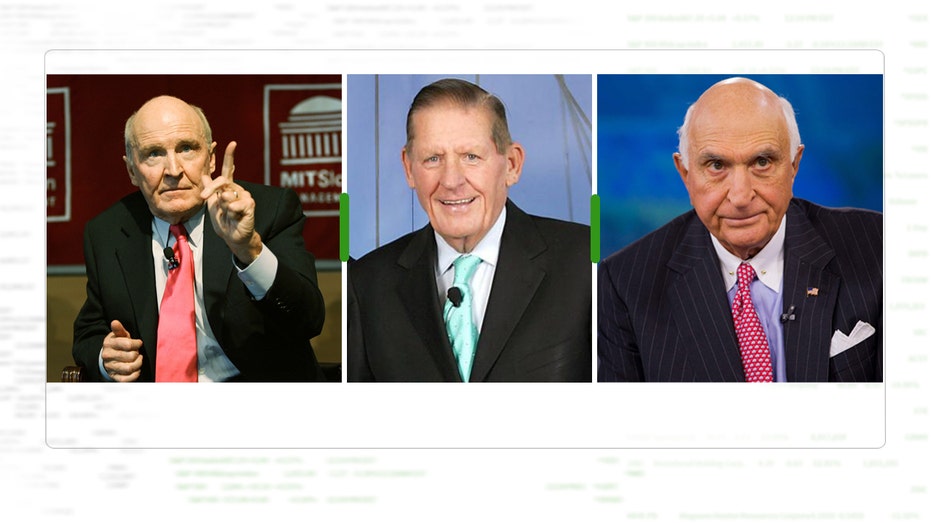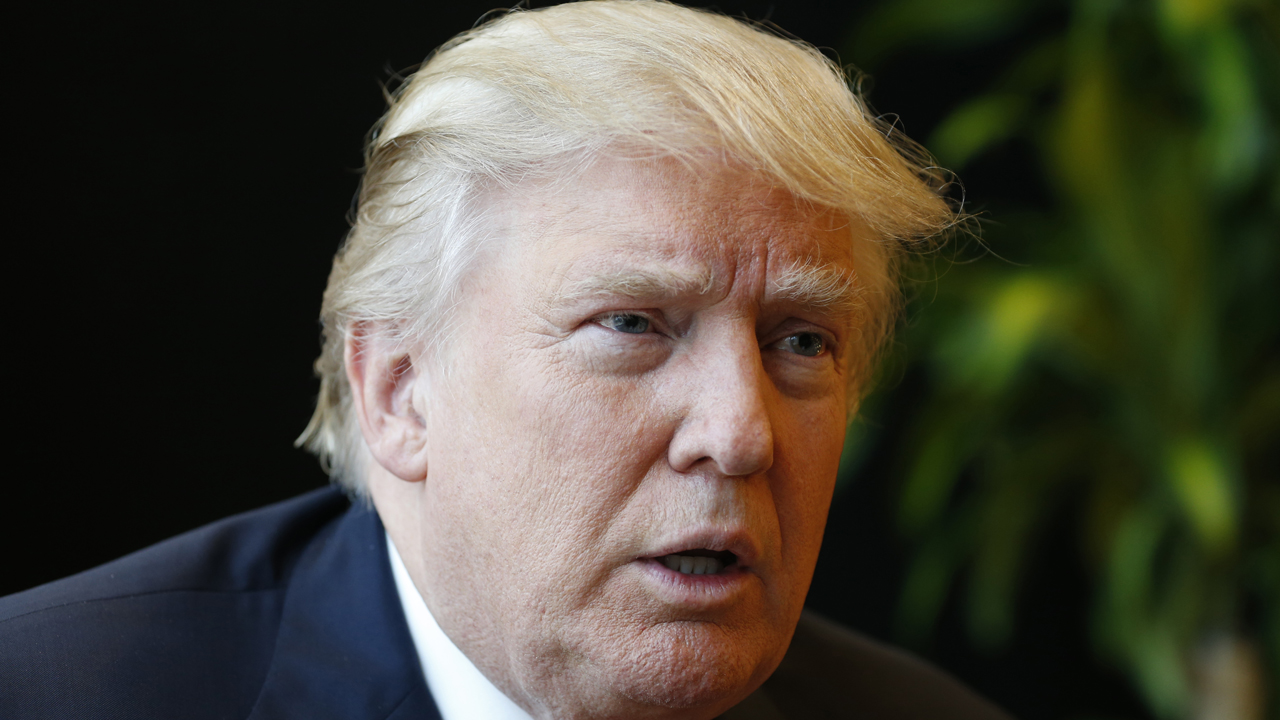Welch, Bossidy & Langone Support Trump With Words, Not Wallets
With Hillary Clinton embracing the soft socialism of Bernie Sanders to secure the Democratic presidential nomination, many top business leaders like former CEOs Jack Welch, Lawrence Bossidy and financier Ken Langone should be rushing to support with their words and just as importantly their wallets the presumptive Republican nominee, Donald J. Trump.
But they haven’t.
While all three business leaders have voiced their support—sometimes publicly in the case of Welch and Langone – for Trump to win the 2016 presidential election, the FOX Business Network has confirmed that none of these executives has given money to Trump’s campaign, and they might not do so any time soon if ever.
The reasons, according to people with direct knowledge of the matter, vary: Bossidy,a long-time corporate chief who last served as chairman of Honeywell Corp. (NYSE:HON), is said to be taking a “wait and see” approach and will re-evaluate whether to begin writing campaign related checks to Trump after next week’s GOP Convention, according to a person with direct knowledge of his thinking.

But one issue for him and the others: The growing skittish among many business executives with the Trump campaign from its positions against various trade agreements to what some believe is his reckless rhetoric on the campaign trail. As FOX Business has reported , executives at Goldman Sachs (NYSE:GS) have told Trump fundraisers that they are being urged by company management not to give to Trump directly, but instead to places like the Republican National Committee, where they can help Senate and House candidates, and to the candidates themselves.
One telling sign of skittish toward Trump: FOX Business has learned that Welch, the former CEO of General Electric (NYSE:GE), Langone, the co-founder of Home Depot Corp. (NYSE:HD), and Bossidy are not planning on attending the GOP convention. And while these executives have not completely ruled out either giving money or raising it for the presumptive GOP nominee, their financial supports appears, at least in part, contingent on Trump adopting what they believe is a less divisive tone on the campaign trail, according to people with direct knowledge of the matter.
Reached by telephone, Bossidy declined to comment, but a person with direct knowledge of his thinking says he “wants to see how the Convention turns out. Hopefully there is some unification and if (Larry) sees that happening through the convention, then he will contribute to the campaign.”
Langone, who is a prolific GOP fundraiser and had supported New Jersey Governor Chris Christie’s failed run for the GOP nomination, declined to comment. Christie is now a part of the Trump campaign. An assistant for Lagone confirmed that he hasn’t contributed to the Trump campaign, but might do so at some point.
Welch also declined to comment; a spokeswoman for him confirmed that he hasn’t given any money to Trump and declined further comment.
A Trump spokeswoman had no comment.
Trump got off to a slow start in fundraising with $1.2 million in his war chest, compared to $42 million for Clinton as of the last filing date. But his fundraising has been picking up steam after hiring a finance chairman with ties to the Wall Street donor class, former Goldman Sachs banker Steve Mnuchin.
Last week the Trump campaign stated it had raised $26 million in June, and $25 million with the Republican National Committee. Clinton meanwhile raised $40.5 million herself and $28 million with the assistance of the Democratic National Committee.
A fundraiser working with Trump confirms that the campaign has seen an increase in donations, which will be apparent when new campaign finance reports are released on July 20, but he confirmed that some resistance among traditional GOP donors remains.
One problem Trump has faced on the fundraising front is that just weeks ago the billionaire decided he would no longer self-finance his presidential campaign and rely on outside donors after determining he didn’t have enough cash on hand to continue to self-finance. Presidential campaigns could cost as much as $1 billion, though Trump has stated he will need far less given his ability to generate free media through his cable television appearances and Twitter (NYSE:TWTR) feed.
The other problems are more self-inflicted, GOP donors tell FOX Business.
Trump’s insurgent campaign for the GOP nomination highlighted both his own estimate of his enormous net worth (at $10 billion) as well as attacks on the donor class—moves that alienated many GOP donors who work in corporate America. For example, he ridiculed his vanquished opponents, such as former Florida Governor Jeb Bush, for being beholden to special interests because he was accepting contributions from the likes of bankers at Goldman Sachs.
His comments about the ethnicity of a judge presiding over a private litigation involving one of his businesses, and other recent statements attacking leaders in the Republican Party who have yet to fully endorse him, have only added to this unease.
“If Donald is so rich and doesn’t need our money, he should finance his campaign himself,” one executive who has supported the GOP told FOX Business.
Still the mood of the Trump resistors in the GOP donor class could change; many GOP fundraisers were aghast at the decision by FBI Director James Comey not to indict Clinton over issues involving her use of a private email account and server to handle classified information while she was president Obama’s Secretary of State even though Comey deemed her activities as “negligent.”
Trump is expected to get a bump in donations not only from Comey’s decision, but also from Clinton moving further to the left on economic issues championed by Bernie Sanders. Clinton has recently endorsed a higher minimum wage and higher taxes in order to appeal to Sanders’ supporters and lock in the Democratic nomination.
Veteran political consultant Hank Sheinkopf said another determining factor for convincing people to write a check: Whether the Republicans can keep Congress, particularly control of the U.S. Senate without Trump winning the presidency.
“If people come to their senses that the GOP have a less of a possibility of reclaiming the Senate on a one legged Trump, they will start giving him money and this won’t impact the campaign long term,” he said. “If they don’t, then, the Trump campaign is probably in real trouble in the long run.”




















